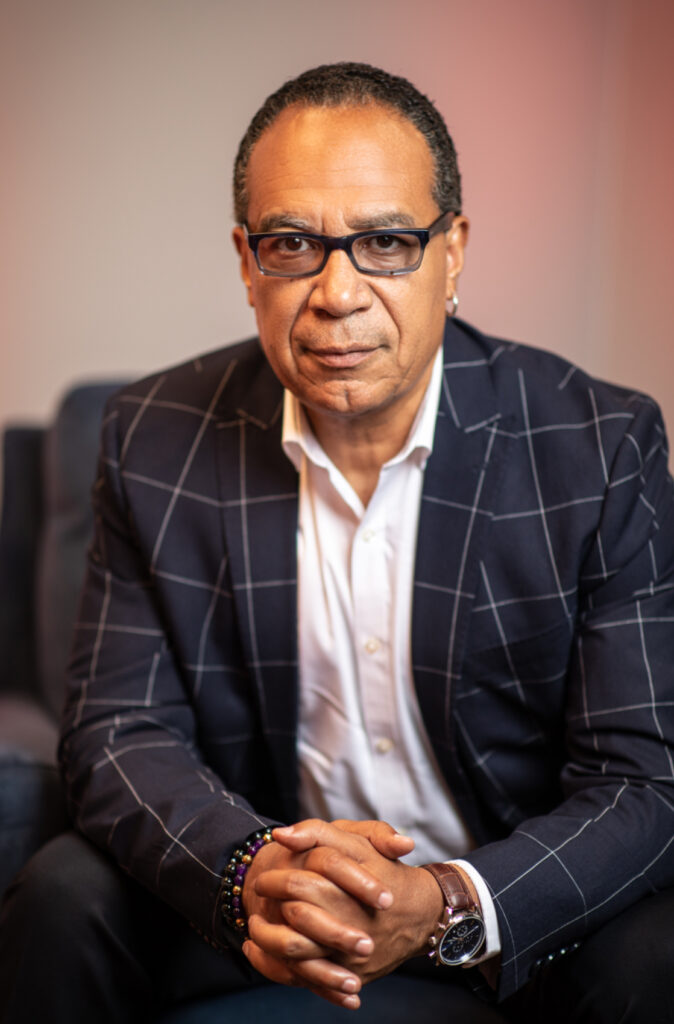Commerce CEO Jay King
Edward Henderson – California Black Media Network
Grammy Award winning singer and record label executive, Jay King, was elected CEO/President of the California Black Chamber of Commerce (CBCC) in June of 2019.
The CBCC is the largest African American non-profit business organization, representing thousands of small and emerging businesses, affiliates and chambers of commerce throughout California.
King is also a member of the popular 1980s R&B group Club Nouveau. In his role as an artist and activist, he has stood up for issues affecting underrepresented Californians for over three decades.
As the President of the CBCC, King says he is determined to put his mark on developing and expanding the capacity of African American businessmen and women.
California Black Media (CBM) spoke with King recently. He reflected on the Chamber’s accomplishments, disappointments, lessons learned this year and goals moving forward.
Looking back at 2024, what stands out to you as your most important achievement and why?
Making the voice of micro and mini-micro businesses loud, forcing policymakers and other decisionmakers across the state to start paying attention to them. With legislation in place now — AB 1574 and AB 2019 – that mandates that the state and agencies affiliated with the state extend opportunities to micro and mini business owners and give them a chance to participate in government contracting in a real way.
How did your leadership and investments contribute to improving the lives of Black Californians?
I really want to contribute to the world and the state of Black businesses because of the systemic inequities in the past.
Small business, micro businesses and mini businesses are too often overlooked.
I think it would be egotistical to believe that I make any significant impact on my own. Whether it’ s the Asian Chamber, Hispanic Chamber and other organizations that are fighting the same fight. I think it’ s a collective, so I’ m proud to be part of the collective.
What frustrated you the most over the last year?
We say we want to give access to capital to small businesses, and yet we continue to create barriers that deny them access to capital.
And even if we get them access to capital, we don’ t create pathways for that success — whether it’ s through education or resources, or through language – providing support in a language that they understand because, maybe, they’ re from another country Or, we don’t even provide cultural-specific resources for people who are from this country.
We ignore and negate the systemic racism, bigotry, prejudice, and bias that African American and other ethnic businesspeople and communities have experienced.
What inspired you the most over the last year?
Watching some of the small business owners that we worked with — these micro businesses — and seeing the potential and the power that is in front of us. If we equip them the right way, if we train them the right way, if we develop them the right way, they can not only flourish, but they can scale and start hiring people in their communities.

What is one lesson you learned in 2024 that will inform your decision-making next year?
We have to fight for Black businessowners, but they also have to be prepared. Just because we want to push them through, because we want them to have a contract, we have to be very careful about who we get in the game, and make sure that they’ re ready. Because if they’ re not, it affects us all down the line.
In one word, what is the biggest challenge Black Californians face?
Self-belief. I think we have been conditioned on victimization and victimhood. We think that if we don’ t get the help we need that we will falter.
We must have real belief that we have made it this far despite every barrier, every obstacle, every disillusionment that has ever come our way. And we are still standing.
What is the goal you want to achieve most in 2025?
I want to change the trajectory of micro and mini business owners.